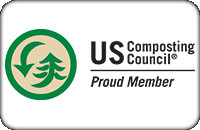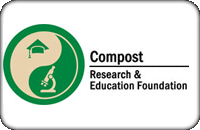The New York State Department of Transportation (DOT) often includes compost in their specifications for highway construction. There are three types of compost that you might see in these documents: Type A, Type B, and Type C. These different composts are typically used for different applications. Type A and Type B composts are used for a variety of soil amendment and landscaping purposes. Type C compost, however, has a more specialized use, compost blankets, and Naturcycle is a leading expert statewide for its application.
The U.S. Environmental Protection Agency (EPA) describes compost blankets as such:
A compost blanket is a layer of loosely applied composted material placed on the soil in disturbed areas to reduce stormwater runoff and erosion. This material fills in small rills and voids to limit channelized flow, provides a more permeable surface to facilitate stormwater infiltration, and promotes revegetation.
…
Controlling erosion protects water quality in surface waters, such as streams, rivers, ponds, lakes, and estuaries; and increasing stormwater infiltration replenishes groundwater aquifers. Applying a compost blanket also works well as a stormwater best management practice because it:
- Retains a large volume of water, which aids in establishing vegetation growth within the blanket
- Acts as a cushion to absorb the impact energy of rainfall, which reduces erosion
- Stimulates microbial activity that increases the decomposition of organic matter, which increases nutrient availability and improves the soil structure
- Provides a suitable microclimate with the available nutrients for seed germination and plant growth
- Removes pollutants such as heavy metals, nitrogen, phosphorus, fuels, grease and oil from stormwater runoff, thus improving downstream water quality.
In order to be used in a compost blanket for slope stabilization and erosion control, Type C compost is coarser than a typical compost and must be manufactured with intent. Naturcycle has produced tens of thousands of yards of Type C compost for highway work throughout the state, most recently supplying thousands of yards to a project outside Syracuse, New York, using compost enrolled in the US Composting Council’s Seal of Testing Assurance program.
While there are artificial products that are sometimes used for this purpose, such as plastic meshes or mats, compost is a natural product, typically produced locally, and frequently required for state highway work. Naturcycle sources Type C compost from several different locations in our network of facilities throughout the state and has the manufacturing and testing expertise that makes us a critical partner for this important highway construction work. Contact us today to learn more!






